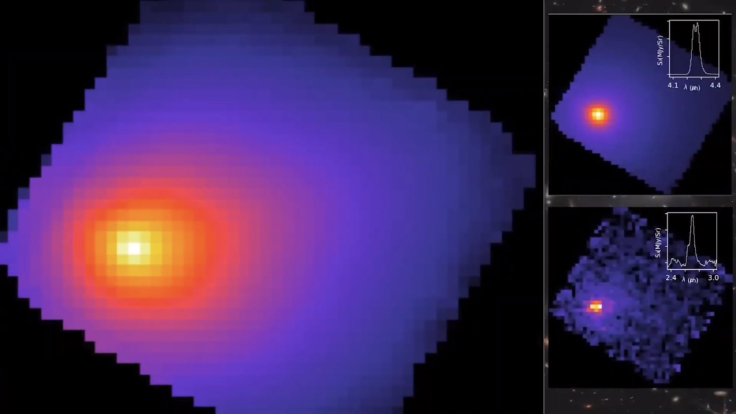Avi Loeb Hits Brian Cox Over 3I/ATLAS, Says Science Is Not a Popularity Show
Avi Loeb slams Brian Cox over 3I/ATLAS, saying science is about evidence and not popularity.

Harvard astrophysicist Avi Loeb has taken aim at British physicist Brian Cox, accusing him of treating serious scientific inquiry like 'a popularity show' amid growing debate over the mysterious interstellar object 3I/ATLAS.
Scientists at Odds Over 3I/ATLAS
The interstellar object 3I/ATLAS, detected by NASA's Asteroid Terrestrial-impact Last Alert System (ATLAS) on 1 July 2025, has sparked global intrigue.
Roughly the size of New York, the object will become only the third interstellar visitor ever recorded entering our solar system.
NASA confirmed that it poses 'no threat to Earth', noting that it will pass some 170 million miles away at its closest approach in late October 2025.
Despite NASA's reassurances, the discovery has divided scientists. Loeb believes there is a real chance that 3I/ATLAS may not be a naturally formed object, while Cox insists it is nothing more than an ordinary comet.
Loeb's Bold Hypothesis
In a paper co-authored with Harvard researchers Adam Hibberd and Adam Crowl, Loeb wrote: 'The hypothesis in question is that [3I/ATLAS] is a technological artefact, and furthermore has active intelligence.' He added that 'two possibilities follow: first, that its intentions are entirely benign and second, they are malign.'
He warned that ignoring such potential anomalies could cause science to miss a 'black swan event'—a rare but transformative discovery.
In a viral post shared by science commentator Surajit on X (formerly Twitter), Loeb was quoted saying that 'Cox is like a cave dweller who finds a phone and calls it just a rock. Real scientists play on the field guided by data while commentators like Cox just sit on the sidelines repeating popularity'.
His statement quickly gained traction, drawing support from those who believe mainstream science too often silences unconventional ideas.
Avi Loeb fires back at Brian Cox for calling #3IATLAS a natural comet
— Surajit (@surajit_ghosh2) October 31, 2025
He says Cox is like a cave dweller who finds a phone and calls it just a rock. Real scientists play on the field guided by data while commentators like Cox just sit on the sidelines repeating popularity pic.twitter.com/QsyATcbQG7
Cox Dismisses the 'Alien Spaceship' Claim
Professor Brian Cox, known for his work popularising science, has been blunt in rejecting such theories.
Responding to growing speculation, Cox was quoted in a LADBible article saying: 'Just to be clear – given recent drivel online – Comet 3I/ATLAS is a comet, made of carbon dioxide and water ices and bits of other stuff. It is entirely natural in origin, its orbit is as expected and it will whizz around the sun and then disappear off into the galaxy again.'
He called it a 'pristine lump of rock and ices' that might have originated from a dead star billions of years ago, concluding with the line: 'Isn't that wonderful enough?'
Science, Spectacle, and the Public Eye
The feud between Loeb and Cox highlights a deeper issue in science communication: how the balance between evidence and entertainment shapes public understanding.
Loeb argues that the field has become too cautious, fearing ridicule instead of exploring bold possibilities.
Cox, however, insists that extraordinary claims demand extraordinary proof.
Loeb's jab that science has become a 'popularity show' resonates with those frustrated by how social media, television, and public personas can overshadow rigorous inquiry.
In a world where research visibility often depends on public appeal, Loeb's critique challenges scientists to prioritise substance over spectacle.
For businesses and institutions that rely on scientific credibility, from aerospace firms to data-driven research agencies, the clash serves as a reminder that how science is presented can influence funding, trust, and policy. When debates turn theatrical, public confidence in expertise can waver.

The Broader Picture
NASA maintains that 3I/ATLAS's orbital path and composition are consistent with a natural comet. '3I/ATLAS will reach its closest point to the Sun around 30 October 2025, at a distance of about 1.4 AU (130 million miles), just inside the orbit of Mars,' the agency stated. It reaffirmed that the object 'poses no threat to Earth and will remain far away."
What Lies Ahead
Whether 3I/ATLAS is merely a frozen relic from deep space or something entirely new, its arrival has reignited global fascination with what lies beyond. For now, the comet continues its long voyage through the solar system—and Loeb's message rings clear: science, at its heart, must be fearless.
© Copyright IBTimes 2025. All rights reserved.





















